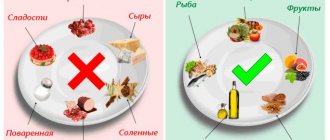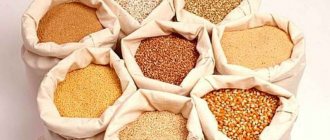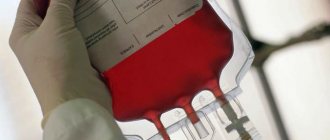Are there any benefits to donating blood?
Many researchers believe that regular small blood losses improve the functioning of the immune system because they stimulate blood volume replenishment.
The main thing about donation
The opportunity to become a donor is a merit of your healthy lifestyle. Find out why regular blood donation is so important. Detailed information about donation can be obtained on the Russian Blood Service portal yadonor.ru or by calling the Hotline: 8 800 333 333 0.
Within a month after donating blood, new red blood cells are actively produced, improving the supply of oxygen to all organs.
Nutritional Features
Before donating blood, drinking alcohol and smoking are prohibited for two days.
You also need to avoid spicy, fatty, fried, smoked foods . It is recommended to eat foods rich in carbohydrates: fruits, vegetables, cereals, pasta.
After the procedure, you need to regain your strength. To do this, eat foods rich in proteins, complex carbohydrates, fruits, nuts, dried fruits. It is recommended to focus on plant-based foods.
If we are talking about whole blood donation, then it will take about 30-40 days for complete recovery.
If a person donates individual components, for example, plasma, the recovery time will be shorter - about 5-6 days. During this time, it is recommended to adhere to the general rules for donors.
How often can you donate blood?
Whole blood can be donated no more than five times a year. There must be at least 60 days between two visits to the transfusion station. After all, it is important not only the amount of blood you donate, but also the state of your health
. After donating platelets or plasma, you can become a donor again within two weeks. But at the same time, you cannot donate plasma more than 12 times a year, because along with it the body loses important proteins, minerals and other useful substances, the restoration of which takes time.
What a donor needs to know
Is donation safe for health?
For any healthy adult, the donation process is absolutely safe and does not harm the body. On the contrary, donating blood or its components has health benefits:
- periodic blood donation reduces the risk of heart attack and stroke by five times;
- donating blood improves metabolism and stimulates the hematopoietic system;
- Constant free health monitoring of donors is carried out.
When donating blood or its components, it is impossible to become infected with hepatitis, HIV or other infections. All instruments, needles and transfusion systems used for donation are disposable. The packaging with instruments is opened in the presence of the donor, and after use it is immediately disposed of.
How much blood is drawn during a blood donation?
The standard donation dose is 450 ml of blood (this is approximately 10% of the total blood volume).
Is donating blood painful?
The sensations from the procedure are individual. Many donors do not detect any changes in their well-being. On the contrary, almost every donor feels a lot of positive emotions from the knowledge that he decided to do a good deed and helped save someone’s life. However, it is recommended to refrain from strenuous activity on the day of blood donation and take advantage of a well-deserved day off.
Why is it recommended to donate blood in the morning?
This rule is observed in the interests of the donor. It has been established that the body responds better to blood loss in the morning hours.
What blood tests are performed before donation?
Before donation, the donor is sent to the laboratory to conduct an initial laboratory blood test: determination of hemoglobin level, blood type, number of red blood cells, platelets and a number of other indicators. After donation, donor blood and its components are examined for:
- ABO blood group; Rh-antigens of the Rhesus system C.c.E.e and Kell systems;
- hepatitis B virus surface antigen (Hbs Ag);
- hepatitis C virus antigen (HCV Ag);
- hepatitis C virus antibodies (Anti-HCV);
- HIV antigen (HIV1-Ag);
- HIV antibodies (Anti-HIV1,2);
- presence of the causative agent of syphilis.
How to prepare for donating blood?
- On the eve and on the day of blood donation, it is prohibited to consume fatty, fried, spicy and smoked foods, sausages, as well as meat, fish and dairy products, eggs and oil (including vegetable oil), chocolate, nuts and dates. There is no need to donate blood on an empty stomach !
- It is better to drink sweet tea with jam, juices, fruit drinks, compotes, mineral water and eat bread, crackers, dried cereals, boiled cereals, pasta in water without oil, vegetables and fruits, except bananas
- You should not drink alcohol 48 hours before your visit to the transfusion station, and 72 hours before you should take medications containing aspirin and analgesics.
- In the morning you need to have a light breakfast, and immediately before the procedure the donor is given sweet tea
- You should also refrain from smoking two hours before donating blood.
- You should not donate blood after a night shift or just a sleepless night.
- Do not plan to donate blood immediately before exams, competitions, a project, during a particularly intense period of work, etc.
How to behave after donating blood?
- Immediately after donating blood, sit relaxed for 10–15 minutes.
- If you feel dizzy or weak, contact staff
- The easiest way to overcome dizziness: lie on your back and raise your legs above your head, or sit down and lower your head between your knees.
- Avoid smoking for an hour before and after blood donation
- Do not remove the bandage for 3-4 hours, make sure that it does not get wet
- Try not to undergo significant physical activity during the day
- Avoid drinking alcohol for 24 hours
- Try to eat plenty and regularly for 2 days
- Drink increased amounts of fluid for 2 days
- Vaccinations after donating blood are allowed no earlier than 10 days later
Why do you need to donate blood again within a year?
To ensure safety, blood plasma is quarantined. 6 months after donating, the donor undergoes a repeat test, according to the results of which the plasma donated by the donor is transferred to hospitals in the city. To do this, we ask donors to come to the blood transfusion department and donate blood again.
How often can you donate blood?
- After donating blood, at least 60 days must pass before the donor can donate blood again
- After donating blood, at least 30 days must pass before the donor can donate plasma.
- After donating plasma, at least 14 days must pass before the donor can donate plasma or blood again
- After five regular blood donations, it is recommended to take a break (at least 2 months)
- Men can donate blood no more than 5 times a year, women - no more than 4 times a year
What certificates are issued to the donor after donation?
In accordance with Art. 186 of the Labor Code of the Russian Federation, on the day of donation of blood and its components, as well as on the day of the associated medical examination, the employee is released from work.
In the case of donating blood and its components during the period of annual paid leave, on a day off or a non-working holiday, the employee is given another day of rest at his request. After each day of donating blood and its components, the employee is given an additional day of rest. The specified day of rest, at the request of the employee, can be added to the annual paid leave or used at other times within a year after the day of donation of blood and its components.
Depending on the frequency of donating blood and its components, donors are divided into the following categories:
- active (personnel) donors who have 3 or more blood (plasma, cyto-) donations per year;
- reserve donors who have less than 3 blood (plasma, cyto) donations per year.
Regardless of which category the donor belongs to, he is provided with social support measures, including at the place of work.
Who should not be a donor?
There is a list of diseases for which you cannot donate blood, since it may be unsafe for the person to whom the transfusion will be given. First of all, these are almost all infectious diseases
, including HIV, syphilis, all types of hepatitis and tuberculosis.
You cannot donate blood if you have parasites
- echinococcus, toxoplasma and other “uninvited guests”.
Those who have malignant tumors, blood diseases, skin diseases, diseases of the nervous and cardiovascular systems, asthma, obstructive bronchitis and chronic obstructive pulmonary disease, some types of gastritis and ulcers, liver diseases and many other diseases, complete list, do not donate blood
which will be announced to you at blood transfusion stations. In addition, you will not be able to become a donor if you abuse alcohol or other psychoactive substances.
FAQ
1. How to start using the application?
To authorize, you can choose one of the methods convenient for you (by email, phone number, via a social network).
2. When registering a profile by email, a letter with an activation link does not arrive at the specified address
In this case, please check your Spam folder. If there is no letter in this folder, please send a letter describing the problem to technical support
3. When you click on the profile registration confirmation link sent by email, the Internet portal displays an error. What to do in this case?
Please send a letter describing the problem to technical support
4. Registered in the application. Why is my donation history not showing up?
To update the history of donations made, it is necessary to obtain a 20-digit donation code according to the last procedure and enter it into the application. You can obtain a donation code by contacting the registry of the blood service institution where the procedure was performed. Please note that currently not all institutions have such a technical capability due to the lack of connection to the automated transfusiology information system. You can view the list of institutions that have the technical ability to issue a donation code in the Where to donate blood? section by selecting the filter “Issues a donation code.”
5.How to enter information about completed donations?
Currently, the mobile application provides the ability to enter donation data in two ways:
1. By entering a code: it is enough to enter a 20-digit code once, then information about donations will be updated automatically within a few days.
2. Manual entry of donations: in the “Planning” section you need to schedule a donation, after the donation date has passed, you must open this entry and click the “Confirm” button. In this case, the entry will appear in the “My Donations” section and will also be taken into account in the counters. Donation records entered manually (via the planning section) can be edited and deleted, donation records received by code cannot.
6. How to enter the donation code?
To enter the donation code, click on the icon with a drop and + at the bottom center in the lower menu block. Please note that it may take up to 24 hours from the moment you receive the code until it is activated in the system. If more than 24 hours have passed since receiving the code, but it is still inactive, we recommend contacting technical support by e-mail
7. Why does the message “The code was added earlier” appear when adding a code for a new donation?
If you have previously entered the donation code into the application, then all data will be updated automatically within a few days. There is no need to enter codes for newly made donations.
8. Made a donation. Data about it is displayed, but there are no analyzes. What to do?
Please note that information with complete test results will be available three days after donation.
9. I go to my profile, all information about donations is gone. What to do?
You need to check whether you have logged in correctly. Perhaps your donation history is linked to a profile registered in a different way. If the problem persists, please send a letter with its description to technical support, and also provide the code for any of the donations you made.
What contraindications to donation are temporary?
People who have visited subtropical countries where malaria is common will not be donors
for three years for a year
after the birth of a child, tattooing, piercing, contact with people with hepatitis B and C, or vaccination against these diseases.
People cannot donate
for six months And also those who went on a business trip or traveled abroad for more than two months. a month
after influenza and ARVI, treatment of inflammatory processes or vaccination with live vaccines.
Blood can be donated ten days
after tooth extraction,
five days
after the end of menstruation.
List of what you can eat before donation
- Cottage cheese;
- Lean meat (such as poultry) and beef (in small quantities);
- Root vegetables (potatoes, beets, carrots, etc.);
- Self-grown fruits, however, should not be too sour;
- Mineral water and not too sweet compotes and fresh juices;
- Egg whites. The recommended amount is no more than one per day;
- Lean fish (such as pike perch, herring or cod);
- A simple soup made with vegetable broth.
Before you go to donate blood, plasma or platelets, you need to drink one glass of a natural drink. If this is not done, blood pressure may change sharply, which will lead to the development of a hypovolemic reaction. Before donating blood, the donor's food should enter the body approximately 2-3 hours before the procedure. This will help you avoid weakness and the risk of fainting.
What to do after the procedure?
The donor's memo contains not only recommendations for preparing for donation, but also rules of conduct after the procedure. A person may experience a decrease in blood pressure and often experience dizziness, which is associated with a decrease in the level of hemoglobin in the blood. At the end of the procedure, the following rules must be observed:
- Immediately after donating blood, you need to relax and sit for about 15 minutes, then go to the buffet to drink sweet tea. If weakness and dizziness do not go away, you need to call a medical professional for help.
- Do not remove the bandage from your arm for about 4 hours and do not get it wet.
- You can't smoke for about an hour.
- Avoid physical activity during the day.
- Do not drink alcoholic beverages for 24 hours.
- In the next two days, you need to eat well and try to drink more fluids (tea, water, juice).
- It is not recommended to do any vaccinations within 10 days after the procedure.
- There are no restrictions on driving a car; you can drive a motorcycle after 2 hours.










